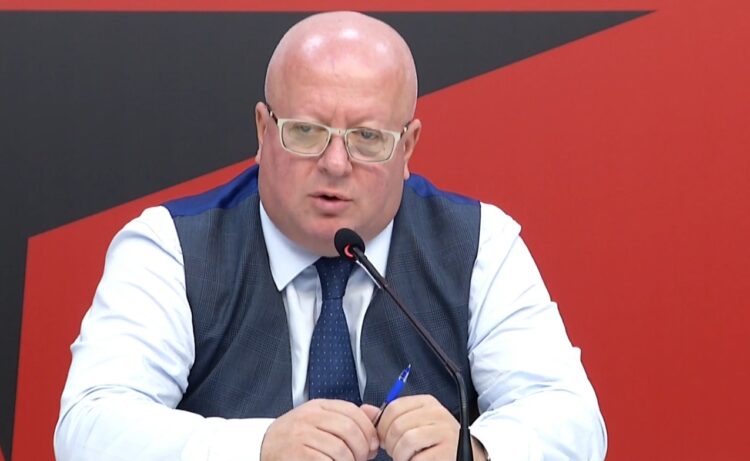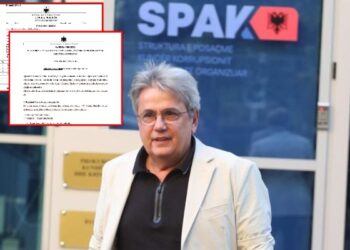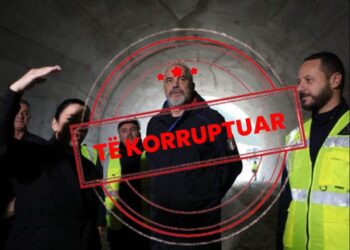By Genc Gjokutaj
Albania is currently facing a serious challenge: will we finally have a truly independent justice system, or will we continue to live in a state where institutions are mere puppets of political power?
In theory, the justice reform was designed to separate politics from the judiciary and prosecution. In practice, political control over appointments and decision-making is threatening to unravel the progress and investments made over the past years.
—
### What is the High Prosecutorial Council (KLP) and Why Does It Matter?
* The *High Prosecutorial Council (KLP)* acts as the “manager” of Albania’s entire prosecutorial system.
* It holds the authority to *appoint the General Prosecutor* and the *Head of SPAK (Special Anti-Corruption Structure)*.
* It decides on promotions, transfers, and disciplinary measures against prosecutors.
* The Council has *11 members, most of whom have been proposed by the **ruling Socialist majority. The staff and advisors are closely tied to this party, making the KLP not an independent institution, but one largely **influenced by political interests*.
* The *Chairperson and Deputy Chair* of KLP are not just figureheads—they often function as *notaries of the ruling party’s orders, turning the Council from a justice body into a **spokesperson for narrow political interests*, far from the impartiality and independence required of the justice system.
* The KLP is a critical junction: from it can either begin the *depoliticization* of justice or the *complete political capture* of the system. So far, it appears to be trending toward the latter.
—
### SPAK – The Strongest (or Weakest) Weapon Against Corruption and Organized Crime
* The *Special Anti-Corruption Structure (SPAK)* was created to investigate *high-level officials, politicians, corruption, and organized crime*.
* It has the legal power to *launch investigations without political approval*.
* However, the *head of SPAK is appointed by the KLP. This means that if the KLP is politically captured, **SPAK risks becoming a political tool*, rather than a truly independent institution.
—
### The Current Problem
* Many members of so-called “independent institutions” are seen as being closely aligned with the ruling majority.
* The *Prime Minister has publicly stated* that judicial independence depends on the Socialist Party—effectively placing both SPAK and KLP under a *political umbrella*.
* The consequence: *prosecutors may feel more obligated to serve political interests than to uphold the law*.
—
### How Can the Situation Be Corrected?
* *Depoliticize the selection of KLP members* – Non-prosecutorial representatives should be selected through *independent processes*, not by political bodies.
* *Ensure transparency in voting* – Every decision regarding appointments or dismissals must be published with a full justification.
* *Penalize political interference* – Legal mechanisms must be established to *punish any prosecutor or judge* who follows *politically motivated orders*.
* *Increase civil and media pressure* – Civil society and the media must monitor and report on KLP decisions in *real time*.
* *Tie international support to results* – Foreign aid and investment in the justice sector should be *conditioned on real independence and tangible outcomes*.
—
### A Call to Citizens and Activists
This November, the KLP is set to appoint the new head of SPAK. This is a *crucial decision* for the future of the fight against corruption.
If this appointment is made under political pressure, SPAK will become just another institution that *targets political opponents while turning a blind eye to the government’s allies*.
This is the moment when *every citizen, journalist, activist, and organization must demand transparency, integrity, and depoliticization*.
—
### Puppets Cannot Deliver Justice.
Anyone in the KLP or SPAK who follows political orders should fear the *law, not feel **protected by the party*.
Without the fear of the law, *there is no democracy—only puppet theater.*
“KAPJA E DREJTËSISË”/ Pse KLP dhe SPAK janë nyja kyçe e rikthimit të shtetit ligjor















